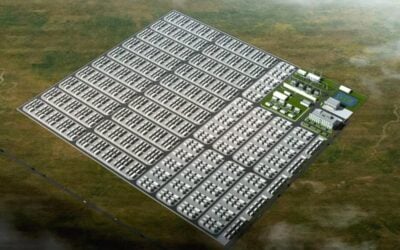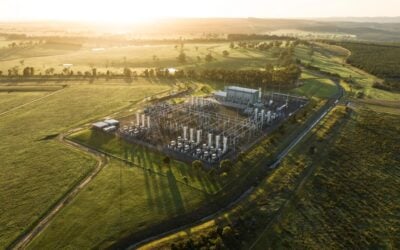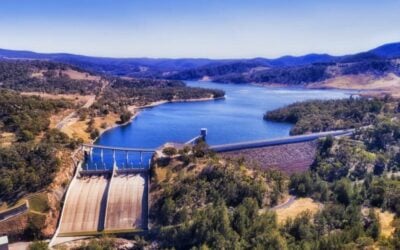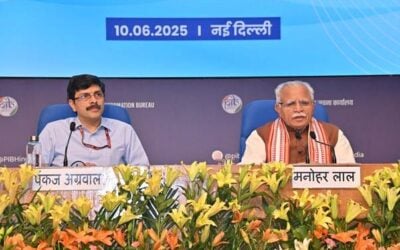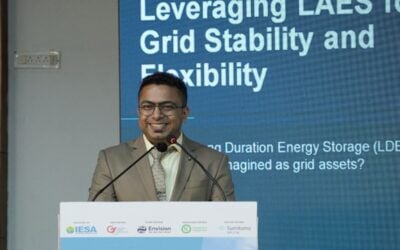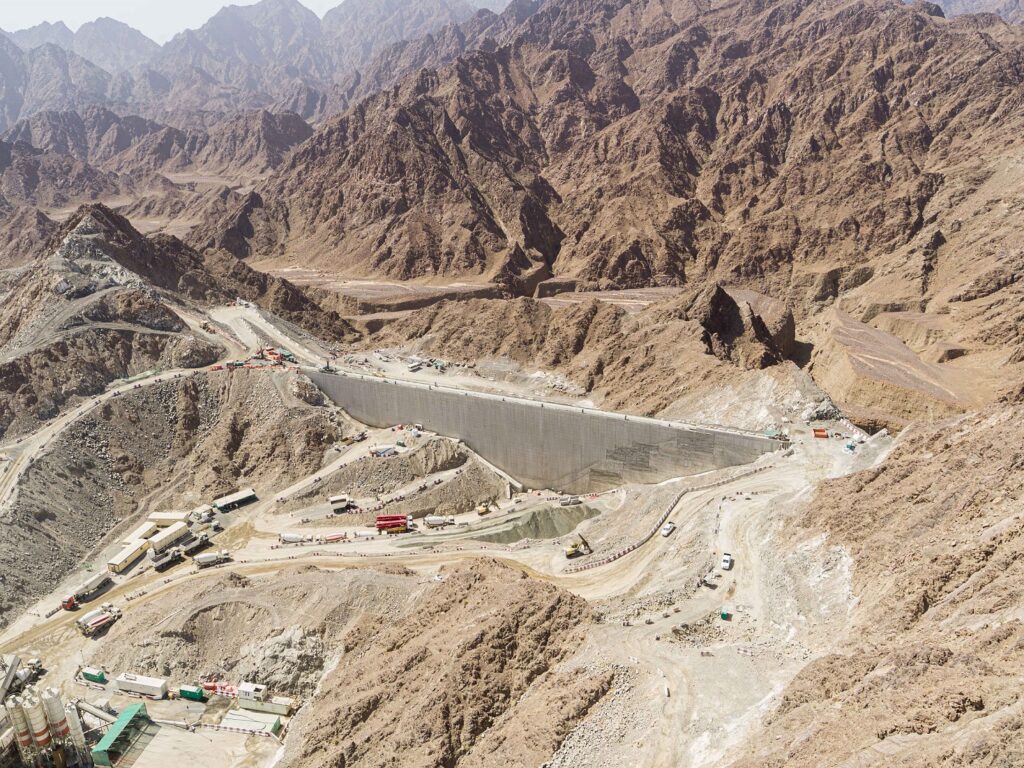
State utility Dubai Electricity and Water Authority (DEWA) has neared the halfway completion mark of the pumped hydro energy storage (PHES) it is building in the United Arab Emirates.
Located east of Dubai in the vicinity of Hatta, the facility will have a storage capacity of 1,500MWh with 250MW output.
Enjoy 12 months of exclusive analysis
- Regular insight and analysis of the industry’s biggest developments
- In-depth interviews with the industry’s leading figures
- Annual digital subscription to the PV Tech Power journal
- Discounts on Solar Media’s portfolio of events, in-person and virtual
Considered as the first station of its kind in the Gulf Cooperation Council (GCC) according to DEWA, the project as an investment of AED1.421 billion (US$387 million) and has reached 44% completion in the last few days, the utility said.
The power plant will have a turnaround efficiency of 78.9% and a response to demand for energy within 90 seconds.
The upper dam’s first 37 metre-high Roller Compacted Concrete (RCC) wall has already been completed and with work now currently underway on the 70 metre main dam wall.
Once completed, the power station will use water in the Hatta dam with an upper dam being built in the mountain to be connected via a 1.2 kilometre long subterranean tunnel, which is currently in construction.
As with other pumped hydro plants, the water will pass through turbines as it falls from one body of water to the other, generating electricity from the energy stored. Water will be pumped back up as the system ‘charges,’ using power generated by the 1GW Mohammed Bin Rashid Al Maktoum solar park currently under construction.
Last year, Energy-Storage.news reported that Hitachi Energy (then known as Hitachi ABB Power Grids) is providing grid connection equipment and systems to ANDRITZ Hydro, the specialist contractor executing the project.
Moreover, DEWA is also building a 5.4km-long cable car route to create a tourist hotspot at the mountain’s top and around the dams with the creation of a natural waterfall that will use the slope of the Hatta dam. The PHES is expected to go into service in early 2024.
Projects involving PHES technology have had a fair share of announcements in the past months, with projects all around the world including Jamaica, Spain, India and Australia.

